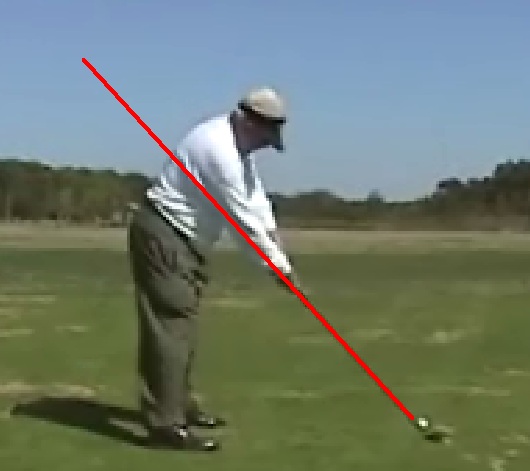
You can improve your chances of hitting 80 by practicing more from short tees. This will build confidence and mental toughness. To improve your game and practice your putting, you should play golf at different times during the day. However, this may not be easy because there are several aspects that can affect your score. If you have a positive mental attitude, you can shoot lower scores if necessary.
Bunker play improvement drills
A lack of acceleration through impact is one of the biggest mistakes players make when hitting bunker shots. Players end up with the ball being less that a foot away from the bunker and have to do a lot of follow-through. This goal can be achieved by practicing hitting a practice shot using your left foot. Keep it flat in sand and lift your right heel off of the ground.
Amateur golfers often hit the ball too far behind their ball. They hit their ball too far, too quickly, or too deep, and the ball lands in the sand. It is best to hit the ball slightly behind the ball to prevent this from happening.

Mental game
Trust your instincts to improve your mental skills and break the 80 mark in golf. Although skills are important in golf, intuition is just as important. Let your right brain take control of your left and trust the right side. Don't worry about technical problems, instead focus on what you are good at. You can improve your chances of hitting 80 by changing your thinking patterns and organizing your mind in a way that makes you more powerful.
Try to focus on missing the green instead of worrying about it hitting in both directions. It may be easier to overcome the mistake if the shot goes in one of these directions. A negative mental state can make it difficult to achieve your goal of breaking 80. Try to remember that golf is supposed to be fun. Don't let your desire to break 80 in golf get in the way of enjoying the game.
Putting practice
Putting practice is the key element to improving your golf game. Each round requires you to make critical decisions. If you practice, you can predict these problems and learn how to solve them. You will also be less likely to get stumped while putting and practicing your short game. A great way to improve your short and long game is to practice putting on the practice green.
It doesn't necessarily have to take too long to get a good warm-up. You can spend just ten seconds on the putting course before you go. Before you can take your first swing, your muscles should be relaxed and active. You will also get a better feel for the speed of green by spending time on the putting course. Spend a few minutes on a green if your goal is to get to 80.

Management of emotions
A key to optimal performance is managing your emotions while golfing. It has been proven that emotional intelligence has a positive influence on performance in many areas. Golfing is no different. You can develop emotional intelligence. This article will explain how to use emotional intelligence to improve your playing. Continue reading to learn how to manage your emotions when playing golf. You can maximize your enjoyment and improve your results by managing your emotions during your game of golf.
Setting a purpose for your golf play is an important aspect of self management. It is possible to manage your emotions so that you can focus on a particular goal and follow the correct path. To accomplish this, it is important to establish a structured plan and not rush your thoughts. You should also be aware of physiological conditions that could impact your performance, such a hypoglycemia, chronic fatigue, and hormone imbalances.
FAQ
How can a golfer score points on the course?
Points are awarded based how well a golfer performs in a competition. In golf, points can be earned in many different ways. One example is that a player can win a tournament simply by scoring more than anyone else. In another scenario, a player might place second in a tournament. This would allow them to receive half the prize cash that was won by their winner. Additionally, players who finish in the 3rd to 10th positions receive points. These additional points are known as 'strokes.'
Other than official competitions, there are many non-official events that award players points. Bonus points can be awarded in certain cases to players who perform well in a particular event.
What is the best time of year to play golf?
Playing golf between May-September is the best time. The weather is mild, there's no rain and it's generally not too hot.
The winter months can bring on extreme cold. It is also difficult to walk on the fairways due to snowfall.
Spring and autumn can be difficult because the grass grows too high.
Can I learn how to play golf?
Yes. There are many schools that offer instruction in golf. You will need to purchase new equipment like a set of golf clubs.
Statistics
- They do this by means of assessing and rating courses according to the average good score of a "bogey golfer," a player with a handicap of around 20. (en.wikipedia.org)
- Professional golfers typically make between 60% and 70% of greens in regulation. (en.wikipedia.org)
- Buying a set of Titleist or Taylor-Made irons for nearly $1,000 is simply not necessary and likely a waste of money. (golficity.com)
- Professional golfers typically make between 60% and 70% of greens in regulation. (en.wikipedia.org)
External Links
How To
How to Make a Perfect Swing in Golf
A great golfer knows how to play the game and what to do to improve it. He must understand how to use the various grips, stances and swings.
These tips will help you learn how to play well golf.
-
Be familiar with the fundamentals of golf before you can begin to improve your game.
-
Practice makes perfect. The best way to practice your skills is to go outside and hit the balls at a target. You can get feedback on your form, technique and play without causing any injury. You can play a few golf rounds once you feel confident in your ability to control the mechanics of your swing.
-
Make sure you are prepared - Before you hit any ball, be sure to check your grip. Adjust if you feel uncomfortable.
-
Keep it simple. Don't try and copy another player's swing. Instead, take inspiration from great players such as Tiger Woods, Phil Mickelson or Jack Nicklaus. Because they have perfected and practiced their own style, they are masters in their field.
-
Technology is a key component to improving your game of golf. You can find many apps that can analyze your swing, track it, measure distances, or even offer advice based on your statistics.
-
Be consistent. When you practice, remember the following principles: * Focus on one aspect at a time. If you are working on your short game, focus only on the drills. Don't mix long and short drills.
-
One part of your body should be your focus. For example: If you work hard on your left side, forget about the right side. It won't improve your overall game.
-
Always be truthful. Never lie to your self. If you think that you are doing more than you actually do, then you are cheating yourself.
-
Play with your friends - This will help you improve your game. Besides helping you stay motivated, having people around also gives you some friendly competition.
-
Know your strengths and weak points - Discover where you excel and where there is room for improvement.
-
Have fun. Enjoy learning how golf is played. Remember that you are never "perfect" at golf. Even though perfection is not possible, it's still a great experience.